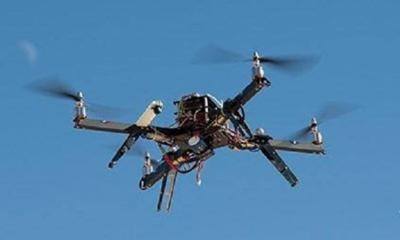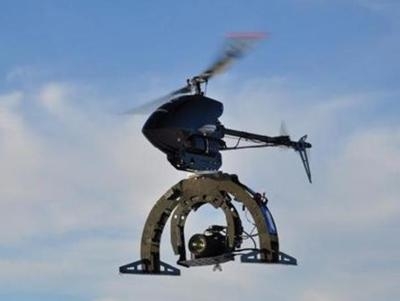Mon, Sep 29, 2014
Association Cautions Manufacturers That Traveling With The Aircraft May Require Special Considerations
As Unmanned Aerial Vehicles – or UAVs – become more commercially available and the list of industries utilizing the technology expands, companies should be aware of the stringent transportation regulations applicable to the lithium ion batteries that power virtually every UAV.

These transportation regulations address the packaging, testing and size limitations (in Watt-hours and kilograms) of lithium ion batteries and UAVs (packed with lithium ion batteries). The rules also specify the number and size (in Watt-hours) of lithium ion batteries that may be carried on aircraft by passengers.
Major companies including Amazon and Google as well as the agriculture, film, journalism, telecommunications and real estate industries are discovering ways to maximize the commercial viability of small unmanned aircraft. UAVS are also being deployed to assist law enforcement in searches for missing persons and by nonprofits in peacekeeping and peacebuilding efforts. Researchers are using the unmanned aircraft to study and save wildlife.
A report by the Association for Unmanned Vehicle Systems International found the industry could create more than 100,000 new jobs and over $80 billion in economic benefits within 10 years after integration of UAVs into the U.S airspace system.

The FAA is expected to announce proposed rules for small commercial drones later this year. However, lithium ion batteries, the engine of the UAVs, are already stringently regulated by the FAA as hazardous materials (also known as "dangerous goods"). The FAA and other transport authorities around the world issue regulations that shippers of UAVs must comply with and that passengers must adhere to when carrying lithium ion batteries onboard an aircraft. Failure to comply with these regulations can result in significant civil penalties levied against companies whose employees are found to be in violation of these regulations.
If a company's employee is traveling with a UAV and spare lithium ion batteries, the U.S. and international hazardous materials regulations strictly prohibit spare lithium ion batteries from being placed in checked baggage. In addition, lithium ion batteries carried on the aircraft by passengers generally may not exceed 100 Watt-hours. However, slightly larger lithium ion batteries exceeding 100 Wh, but not exceeding 160 Wh, may be carried onboard the aircraft with the approval of the airline. No more than two of these slightly larger lithium ion batteries may be carried on the aircraft.
(Images from file)
More News
Aero Linx: International Federation of Airworthiness (IFA) We aim to be the most internationally respected independent authority on the subject of Airworthiness. IFA uniquely combi>[...]
Ultrahigh Frequency (UHF) The frequency band between 300 and 3,000 MHz. The bank of radio frequencies used for military air/ground voice communications. In some instances this may >[...]
A Few Questions AND Answers To Help You Get MORE Out of ANN! 1) I forgot my password. How do I find it? 1) Easy... click here and give us your e-mail address--we'll send it to you >[...]
From 2019 (YouTube Edition): Learning To Paint Without Getting Any On Your Hands PPG's Aerospace Coatings Academy is a tool designed to teach everything one needs to know about all>[...]
Also: Sustainable Aircraft Test Put Aside, More Falcon 9 Ops, Wyoming ANG Rescue, Oreo Cookie Into Orbit Joby Aviation has reason to celebrate, recently completing its first full t>[...]
 ANN's Daily Aero-Linx (05.06.25)
ANN's Daily Aero-Linx (05.06.25) ANN's Daily Aero-Term (05.06.25): Ultrahigh Frequency (UHF)
ANN's Daily Aero-Term (05.06.25): Ultrahigh Frequency (UHF) ANN FAQ: Q&A 101
ANN FAQ: Q&A 101 Classic Aero-TV: Virtual Reality Painting--PPG Leverages Technology for Training
Classic Aero-TV: Virtual Reality Painting--PPG Leverages Technology for Training Airborne 05.02.25: Joby Crewed Milestone, Diamond Club, Canadian Pilot Insurance
Airborne 05.02.25: Joby Crewed Milestone, Diamond Club, Canadian Pilot Insurance




